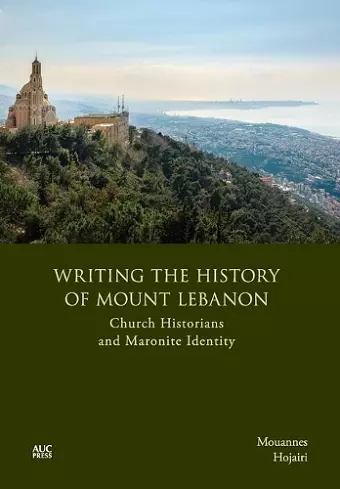Writing the History of Mount Lebanon
Church Historians and Maronite Identity
Format:Hardback
Publisher:American University in Cairo Press
Published:5th Oct '21
Should be back in stock very soon

A meticulous deconstruction of Maronite history writing and the ways in which Lebanese nationalist myths have been invented and perpetuated by historians
As a frequently contested territory, Mount Lebanon has an equally contested history, one that is produced, shaped, and revised by as many players as those who molded the Lebanese state since its inception in 1920. The Lebanese Maronite Church has had more at stake in the process of history writing than any other group or institution. It is arguably one of the most influential institutions in Lebanese history and definitely the most influential institution in the country at the moment of the state’s birth.
Writing the History of Mount Lebanon traces the genealogy of Maronite identity by examining the historical traditions that shaped its contemporary manifestation. It explores the presence of a tradition in Maronite Church historiography that was maintained by the historians of the Church, whose claims and hypotheses ultimately defined the communal identity of the Maronites in Mount Lebanon and deeply influenced subsequent Lebanese national identity. Rooted in a reexamination of the existing literature and bringing evidence to bear on this particular aspect of history-writing in Lebanon, it shows how early Maronite ecclesiastic historiography’s plea for inclusion as a part of Catholic orthodoxy was transformed and recast in subsequent centuries by lay and secular historians into a demand for exclusion and exclusivity, which in turn led to the rise of exclusivist political identities based on sectarian belonging in Mount Lebanon.
Ultimately, Mouannes Hojairi shows how history-writing is one of the main instruments in generating and perpetuating nationalist ideologies and how historians are central agents of nationality.
"This book is an intriguing comparative analysis of histories of Lebanese identity . . . Recommended."—CHOICE
"This book traces the origins and development of Maronite identity in Mount Lebanon and its impact on the creation of modern Lebanese national identity. Mouannes Hojairi does so by investigating four critical authors . . . . By focusing on these four Maronite authors, his book adds to the historiography of the emergence of the contested Lebanese identity and of Lebanon as an independent state."—The Catholic Historical Review
"Mouannes Hojairi provides a most important history of how Maronite identity was conceived in Lebanon and how crucial church historians were to the creation of nationalist mythology. The details this book unravels are essential to understanding contemporary Lebanese nationalism and sectarian politics."—Joseph Massad, Columbia University
"In this careful deconstruction of Maronite history-writing from the sixteenth century to the present day, Mouannes Hojairi forcefully shows that Lebanese historians, and Maronite historians in particular, have continued to write tendentious, religiously tainted histories of their country. In doing so, they uncritically reproduce older narratives, including pure lore, that thus survive through the centuries, even though their original empirical evidence is flimsy at best. This book will serve as a salutary lesson for historians and history writers today."—Sune Haugbølle, Roskilde University, Denmark
“With a shrewd elegance and well-versed skill of sailing between myth and fact, which are, in the case of Lebanon, a woven tapestry of church and civil history, almost impossible to disentangle, Hojairi emerges as a miracle-maker capable of delivering a coherent narrative that defies the reality of Lebanon and somehow makes sense of its interconnected counterfactual religious histories, while laying bare their complexity for everyone to see and enjoy.”—George Saliba, American University of Beirut and Columbia University
"This edited volume explores the conditions of social science doctoral studies in Egypt and the ways that being outside global knowledge centers impacts the country’s academics. The book’s chapters aim to outline the role of Egyptian universities in providing space and legitimacy for the production of knowledge and access to labor. The contributors are concerned with the class constraints encountered when studying the humanities as well as state and international emphasis on more high-earning fields of study. With multiple case studies, the book includes chapters on the anthropology of doctoral candidates themselves, the operating procedures of university departments, the overthrow of President Husni Mubarak’s impact on academia, and more."—The Middle East Journal
ISBN: 9781649031259
Dimensions: unknown
Weight: unknown
240 pages